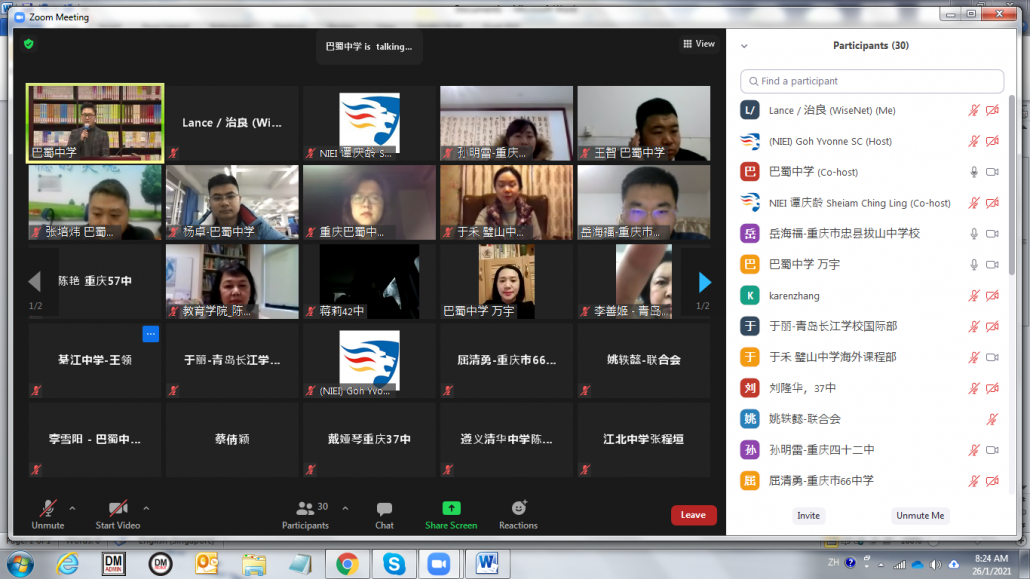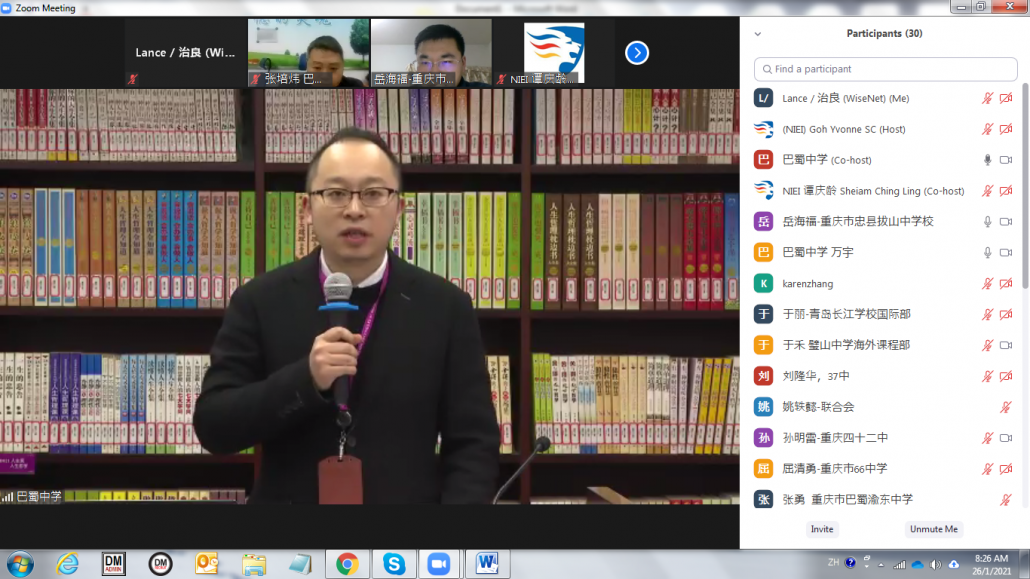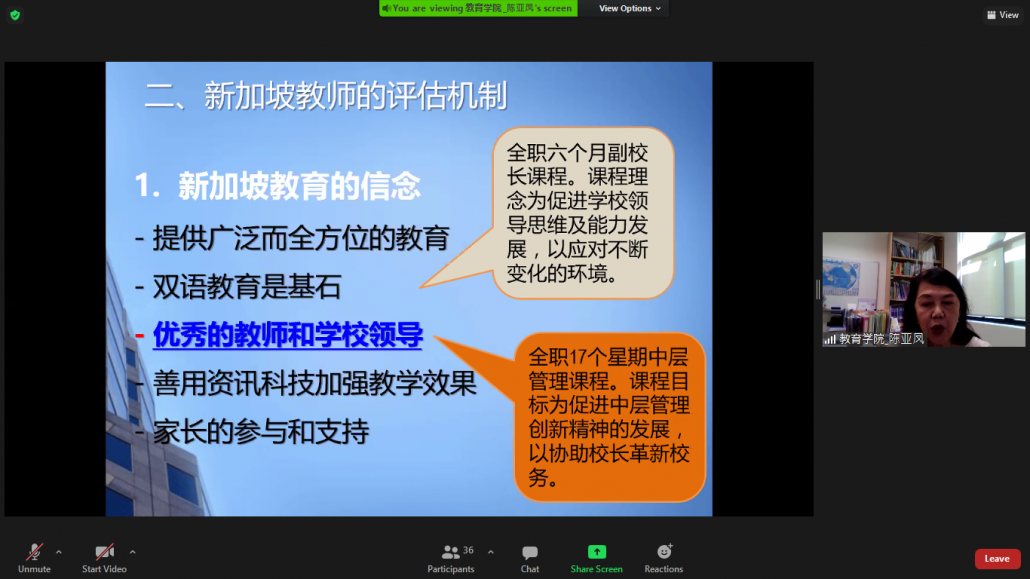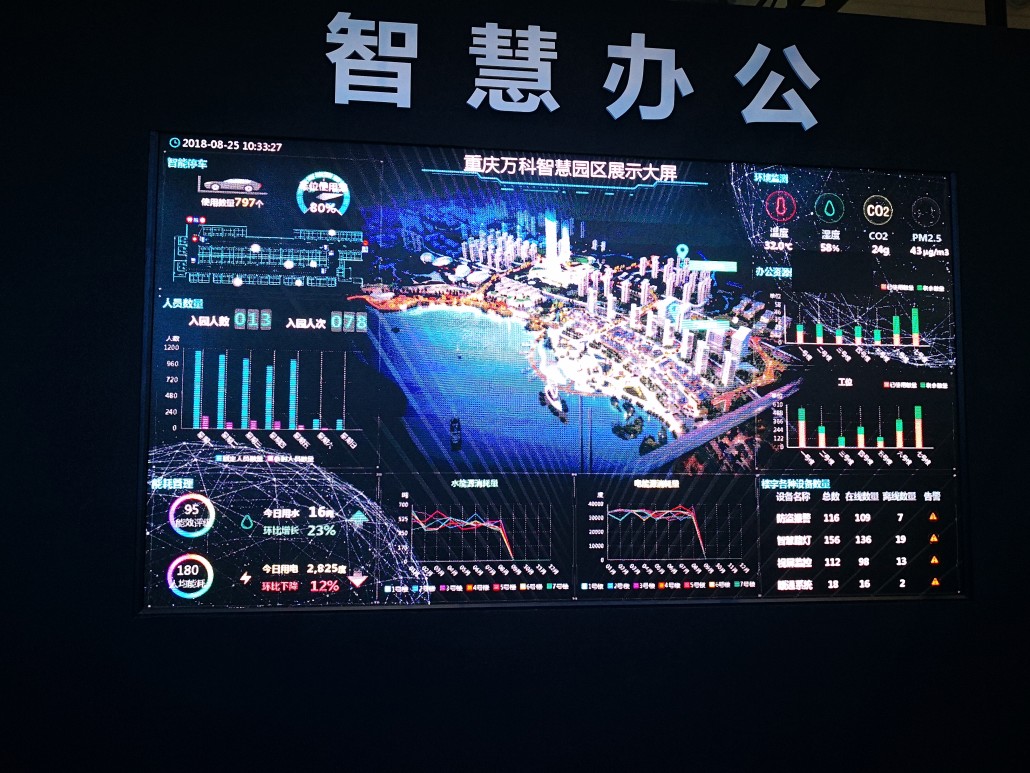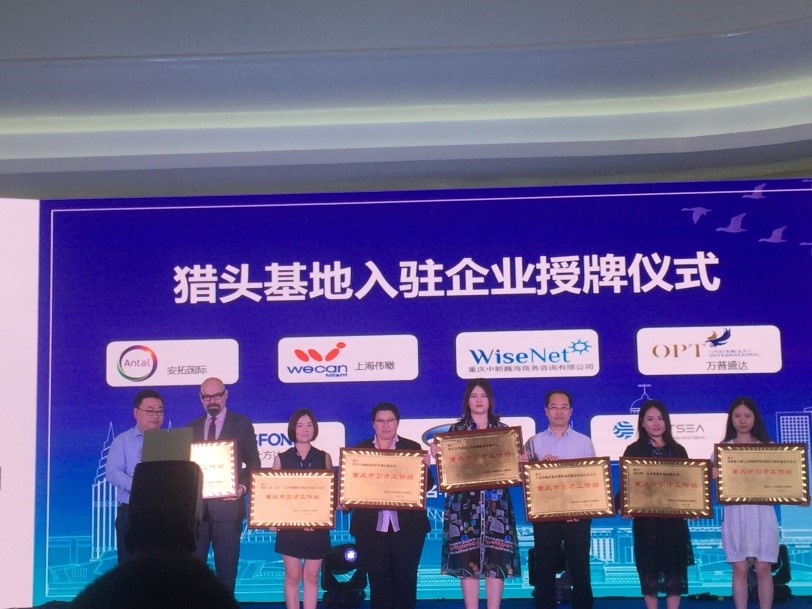How will the Wuhan coronavirus affect China’s economy? Which industries will be most affected, and which assets will usher in a bottoming rebound?
This article is translated and republished from China Investment Network
1 Feb 2020: In the early morning of January 31, the World Health Organization (WHO) announced that the Wuhan coronavirus 2019-nCoV was listed as an international health emergency. However, WHO does not recommend the implementation of travel and trade restrictions. The Wuhan coronavirus outbreak that has started in Wuhan has lasted for more than a month, and is still spreading. According to the National Health and Health Committee, as of 24:00 on January 30, a total of 9692 confirmed cases of new-type coronary pneumonia were reported, of which 1,527 were severe cases, 213 were fatal cases, and 171 were cured and discharged; 1982 confirmed cases were newly added on the day.
In the stock market, class A shares are in the period of lunar new year market break, thus the impact of the coronavirus on A-shares has yet to be seen. However, it is undeniable that the impact of the epidemic on macroeconomics cannot be ignored. The impacts on overseas capital markets and commodity markets are showing with the Asia-Pacific, European and American stock markets all falling across the board.
With the severe coronavirus scare, people’s mobility are reduced, businesses and production sites have been forced to close or delay opening. At the same time, many cities have announced plans to delay their start work dates. The series of actions will weaken economic activities at large and affect the macroeconomic development. Service demands and local consumption are inhibited; production, investment, and exports have been hampered; unemployment may have risen; and GDP growth has slowed.
The first to be impacted is local consumption. Due to the concentrated outbreak of the coronavirus during the traditional Chinese New Year holidays, the industries most affected in the short term are the service industry, especially the transportation, tourism, catering, and entertainment industries. The growth rate of the tertiary industry will be impacted, eventually lowering the growth of consumption. During the SARS period, consumer consumption fell by nearly 6 percentage points year-on-year.
Taking the transportation service industry as an example, on January 28, the Ministry of Transport announced that on January 27, railways, roads, waterways, and civil aviation nationwide sent 16.267 million passengers, a decrease of 68.3% over the same period last year. Among them, the number of passengers sent by railway was 3.463 million, down 62.2%; the number of passengers sent by road was 11.46 million, down 70.3%; the number of passengers sent by water was 283,700, down 83.6%; and the number of passengers sent by civil aviation was 1.006 million, down 42.8%.
The impact of the coronavirus on dining and entertainment is also very significant. In Beijing, the KTV entertainment venues represented by Mai Song are temporarily closed. Beijing ’s most famous food street, the Qiong Street is usually crowded especially during the public holidays. In stark contrast, it has only few pedestrians now. Restaurants are forced to temporarily suspend their business to prevent the spread of the epidemic. These impacts will be reflected at the macroeconomic level, that is, GDP and growth rate, and even employment. The consequences of the Wuhan coronavirus on the secondary industry should not be underestimated. While restricting the movement of the population, the operations of companies are also affected, resulting in chained consequences of lower productivity and industry performance.
In addition, China is the world’s largest exporter of merchandise. Some countries and regions will reduce or suspend the import of goods considered as connected to the epidemic. This will have a certain negative impact on China’s export commodity manufacturing industry.
The Wuhan coronavirus has disrupted China’s already-opened industrial expansion and economic progression. Zhang Ming, chief economist of PingAn Securities, believes that the outbreak may affect both the supply and demand of consumer goods. On the other hand, considering the adverse impact of the pneumonia epidemic on industrial enterprises, the restocking cycles of industrial enterprises may be delayed, or become lesser, which means that the recovery of PPI (industrial price index) growth may be delayed.
As for the impact of the epidemic on GDP growth, Li Xunlei, chief economist of ZhongTai Securities, believes that the main impact of the new crown epidemic on the Chinese economy is in the tertiary industry, and the annual impact is estimated to be about one percentage point. The negative impact of GDP growth may exceed 0.5 percentage points.
Zhang Ming believes that if we do not consider further development of macroeconomic policies, the economic growth rate in the first quarter of 2020 may be about 1 percentage point lower than the previous forecast. The GDP growth rate in the first quarter of 2020 may be around 5.0%, and the possibility of less than 5.0% is not ruled out. The annual economic growth rate may be around 5.7%. In Tianfeng Securities (6.400, -0.18, -2.74%), the macro team believes that if the epidemic situation cannot be effectively controlled in the short term, lowered consumption and productivity may affect economic stabilization in stages, and the real GDP growth rate may fall below 6 in the first quarter.
In addition, rating agency Standard & Poor’s made a “preliminary assessment” that Wuhan coronavirus could reduce China’s GDP by 1.2 percentage points.
However, some domestic economists have expressed optimistic views. Wei Shangjin of Fudan University believes that the impact of the pneumonia incident on China’s GDP will be about 0.1%.
Huang Yiping, a professor at the National Development Institute of Peking University, believes that these shocks happened at a sensitive time. Economic growth has clearly declined in 2019, but GDP was still maintained around 6%. With the new Wuhan coronavirus, the downward pressure on economic growth in the first quarter of 2020 will increase again, which will inevitably directly affect the Chinese people’s day-to-day living (73.500, -0.54, -0.73%) and investor confidence. Therefore, while the government is working hard to control the epidemic, it should also consider adopting some policy responses.
Regarding the government’s response, Li Xunlei said that in order to deal with the negative impact of the new crown epidemic (the black swan) on the economy, it is necessary to re-adjust the established fiscal and monetary policies in 2020. Assuming that the epidemic will drag down GDP growth by 1 percentage point under pessimistic expectations, then about 500 billion yuan of investment and consumption will need to be hedged to achieve a steady growth effect.
Li Xunlei suggested that the scale of fiscal expenditure should be expanded, and the proposed fiscal deficit rate should be increased from 2.8% in 2019 to 3%, that is, increase fiscal expenditure of about 200 billion yuan; in terms of monetary policy, a stable and loose monetary policy should be implemented. It is necessary to consider cutting interest rates quarterly, and to increase the target for lowering the interest rate throughout the year to promote new investment or local consumption.
There are also many economists calling for tax cuts for SMEs to reduce corporate burdens.
Capital and Commodity Markets: Slump and Retracement
In response to the epidemic, the General Office of the State Council decided to extend the Spring Festival holiday to February 2 and February 3 to officially resume work. Subsequently, the Shanghai Stock Exchange and the Shenzhen Stock Exchange announced on January 27 that the 2020 Spring Festival will be closed until February 2 (Sunday), and February 3 (Monday) will be opened normally.
It is worth noting that on the last trading day before the Spring Festival (January 23), the market experienced a panic-stricken sell-off, with 9.3 billion funds flowing out of Beijing, and the Shanghai Stock Index and Shenzhen Stock Exchange Index falling by 2.75% and 3.52% respectively. From a global perspective, peripheral stock markets and commodities outside the market are generally worried that the epidemic will cause the Chinese economy to plummet.
The most direct impact on the Chinese stock market and investor sentiment is naturally the Hong Kong stock market. On January 29, the Hong Kong stock market opened for trading. The Hang Seng Index plunged 2.82% on the day and continued to plunge 2.62% on the 30th. Over two days it plunged to 1500 points, a decline of 5.37%. Another important index future that Chinese investors pay special attention to is the FTSE A50 futures, the index futures trading most active February contracts ‘performance were very bleak. Following a 5.64% plunge on January 27, it plunged 3.28% again on January 30.
In terms of US stocks, the three major US stock indexes, the Dow Jones Industrial Index, the Nasdaq Index, and the Annotated Poole Index, each experienced varying degrees of decline. On January 27 (Monday), US stocks opened sharply lower. At the close, both the Dow Jones Index and the S & P 500 fell by 1.57%, and the Nasdaq also fell by 1.89%. Under the weak market, China’s stocks fell, Alibaba closed down 3.87%, JD.com closed 4.8%, Baidu closed down 2.86%, Weibo fell 0.96%, Pinduoduo fell 2.01%, Weilai Automobile fell 13.95%, NetEase fell 1.84%. Large U.S. technology stocks also fell across the board, with Apple down 2.94% and Amazon down 1.79%.
Although European stock markets have not been hit as much as US stocks, from the perspective of German DAX, British FTSE 100, and French CAC index, they have all declined by about 3 percentage points.
The economic slowdown will also affect commodity markets. However, the demand for the commodity market has different performances due to economic impact. Specifically, from January 19 to January 29, 2020, crude oil and industrial metals fell more than the stock market, of which ICE cloth oil and LME copper dropped 10% and 9.77%, respectively. The market performance of crude oil and industrial metals is highly dependent on economic expansion.
A senior commodity practitioner said to China Investment Network that the Wuhan epidemic has a very direct impact on commodities because commodities are located upstream and midstream of the entire industry chain, also the commodity market has strong global linkages. The short-term negative impact of this epidemic on commodities is relatively large, and it is typically represented by commodities such as iron ore, rubber, and copper.
Taking iron ore as an example, the SGX Iron Ore 2002 contract started to decline on January 23, and fell more than 12% in six trading days as of press time. The above industry experts believe that the core reason for the decline is the short-term stagnation of economic activity affecting the demand for commodities, such as iron ore as a raw material for steel. If the start work time after the Spring Festival is further delayed, and the construction activity lags, then traders and steel mills will face great pressure with their ready stocks. When there is stock dumping, the price of iron ore will be further reduced. “But then demand will gradually rise as the epidemic eases. The best indicator of observed demand is the number of newly diagnosed patients. When the figure turns downward, demand and the price of various assets will rise, probably in March-April. The conclusion is that demand will not disappear, the epidemic will have a smaller impact on the economy as a whole, but a greater impact on the momentum of growth. “
Hedge assets such as gold are different. Against the background of economic slowdown, it is possible to usher in loose monetary policy. As safe-haven assets, gold and U.S. Treasury bonds saw price increases over the same period. From January 21st to 29th, the New York Mercantile Exchange gold futures rose 1.37%; during the same period, the yield on 10-year U.S. Treasury bonds fell by 24bp to 1.60% (the rise in the price of Treasury bonds represents a decline in yields).
The external market performance will eventually be reflected in the performance of class A shares, affecting investor sentiment and behavior. Many investors expressed concerns over market movements after the holiday. However, institutional perspectives are not pessimistic. Yang Delong, chief economist of Qianhai Open Source Fund, said that after the holiday, the trend of the class A shares depends on the spread of the epidemic, but in the medium and long term, the epidemic will not change the market dynamics of class A shares. He thinks that if the market pulls back a lot after the holiday, it is precisely the time to buy in undervalue high-quality stocks.
Anxin Securities believes that the short-term negative impact on the stock market may be less than 10%, or even lower; the medium-term impact on the stock market is small; the market trend is closely related to the number of cases, and the inflection point of case decline will be the inflection point of market repair.
Everbright Securities (12.400, -0.48, -3.73%) said that historically, the emotional impact of epidemics has been short-term. For class A shares, although the adverse news of the epidemic may cause the market to fall in a short period of time, the continuous decline of the market often does not exceed one or two weeks, and then rebounds often occur. Even if SARS had a short-term impact on the economic growth of Q2 in 2003, it did not change the cyclical upward trend determined by fundamentals. For the moment, we should pay close attention to the fundamentals’ trends without excessive panic.
Some investors directly compared the impact of the Wuhan coronavirus incident on the capital market with the 2003 SARS. However, most agencies say this is inappropriate. Although the two incidents directly affected industries such as transportation, tourism, and consumption, the current Chinese economy is not structurally the same as in 2003.
Li Xunlei said that in 2003, China’s economy was in a high-growth stage with heavy industrialization, urbanization, and consumption upgrade. There was with sufficient upward momentum back then. Today, China is in a critical period of supply-side structural reform and economic transformation, and the impact of the Wuhan coronavirus may lead to new problems.
The Wuhan coronavirus will significantly impact dining, tourism, and consumption. From the perspective of economic structure, consumption has contributed more than 60% to China’s economic growth. The consumption and service industries also support China’s employment. The impact of the pneumonia incident on the economy, especially on the capital market, is not completely comparable to 2003.
How does the Wuhan coronavirus affect industry performance?
Under the epidemic, medical stocks were on a binge. The Hong Kong-listed China Medical Group surged 18 times in two trading days because its affiliates could produce products to suppress the pneumonia epidemic. Since the outbreak, Lukang Pharmaceutical in the class A-share market (11.390, 1.04, 10.05%) has exceeded 70% in value. Anti-virus mask concept manufacturers stocks are soaring above stock market value.
There are also organizations that are optimistic about the future of China’s “home” economy, which will ultimately affect the performance of express delivery, games, and online education. New Oriental Online announced that it will provide 1 million New Oriental Online Spring Class live broadcast courses to primary and secondary school users nationwide for free. There are also several educational institutions offering free online courses for Wuhan students.
However, some brokers have expressed concerns about the recent rise in the pharmaceutical sector, which has been affected by the epidemic. The research report of Zheshang Securities (10.570, -0.65, -5.79%) wrote that the outbreak or the catalyst of a phased turn in the market for the medical and biology sectors is good in the short term, but it will not be continuous. Looking back on the several stages of the SARS epidemic that rose from the outbreak to the fall, the market for medical organisms only appeared in the outbreak period, and lasted less than a month in April.
From a wider industry perspective, the adverse impact of the epidemic will eventually affect the capital markets, which includes consumption (accommodation, tourism, catering, etc.), infrastructure (construction machinery, transportation investment, power heating, etc.), transportation (railway, airplane, road transport, etc.), film and television, etc.
Aviation Industry
Due to peoples ‘reduced mobility, the major epidemic has had a greater impact on the aviation industry. In terms of airports, looking back to the SARS period, when the epidemic broke out, the passenger throughput and take-off growth rate of airports across the country significantly decreased. Taking the Capital Airport as an example, the passenger throughput in May 2003 fell by 86.54% year-on-year. The number of flights dropped by 65.51% year-on-year.
Compared with airports, the epidemic situation has a greater impact on airlines. At present, the Civil Aviation Administration has required that airlines and its ticket sales agency provide refunds to passengers who have previously purchased civil aviation tickets starting at 00:00 on January 24, 2020. Refunds shall be processed free of charge. At present, many airlines have suspended flights to and from Wuhan and gradually reducing the capacity of international flights.
With reference to the SARS period, the passenger traffic of civil aviation in China in the second quarter of 2003 decreased by 48.9% year-on-year. In May of that year, the number of domestic flights, international flights, and Hong Kong and Macao regional flights decreased by 59.3%, 69.7%, and 80.6% respectively. The impacts of SARS on airlines: Air China (8.250, -0.38, -4.40%) Cumulative loss in the first three quarters of 822 million yuan, China Eastern Airlines (5.100, -0.18, -3.41%) Net loss in the first three quarters of 1.193 billion yuan, China Southern Airlines (6.430, -0.25, -3.74%) Net loss in the first three quarters was 783 million yuan.
Aviation stocks fell significantly within two trading days from January 20-21, Air China (00753.HK) plummeted 12.58%, China Eastern Airlines (00670.HK) plummeted 12.15%; China Southern Airlines ( (01055.HK) plunged 11.24%, while Cathay Pacific (00293.HK) fell 5.98%. In addition, when the Hong Kong stock market opened on January 29, aviation stocks fell across the board.
Bank of America Securities issued a report saying that in response to the outbreak of Wuhan coronavirus, the mainland aviation industry will be affected in the short term. Both Air China and China Southern Airlines ’investment ratings were downgraded to “underperform”, reducing Air China ’s target price from HK $ 9.25 to HK $ 6.15. China Southern Airlines’ target price has dropped from HK $ 6.15 to HK $ 4.4.
After the SARS epidemic ended, the aviation sector picked up significantly. Take China Southern Airlines Hong Kong shares as an example. Since the first SARS case broke out on November 16, 2002, China Southern Airlines Hong Kong shares have shown a downward trend, falling to HK $ 0.82 on April 28, 2003, a drop of 29%. However, when the epidemic situation was under control, the stock price rose to HK $ 2.58 on February 23, 2004, an increase of 121%, with a considerable rebound.
China Merchants Securities (18.750, -0.77, -3.94%) believed that the current market sentiment has reflected in the airport aviation industry. Historical experience has proven that the related shares rebounded significantly after the epidemic was eliminated. As of now, it has investment value for long-term investors.
Tourism Industry
With the gradual development of the Wuhan coronavirus, the mobility of domestic travellers has reduced. At the same time, the suspension of visas to Chinese citizens in many countries will reduce the number of tourists and the total tourism revenue. During the outbreak of SARS in 2003, domestic tourist arrivals fell by 0.9% and total tourism revenue fell by 11.2%.
The above impacts are reflected in the stock price: Fosun Cultural Tourism (01992.HK) and Ctrip (TCOM) both fell sharply during the outbreak. Ctrip started to fall sharply on January 21, and fell 7.91% and 6.89% on January 24 and January 27, respectively, and then rebounded on January 27. The latest trading day closed at 32.86 yuan. The closing price before the outbreak was 38.94 yuan, which fell more than 18% in just 7 trading days.
The hotel giant Huazhu (HTHT) also recorded a huge drop of 10.56% on January 21; Fosun Cultural Tourism also did the same: three consecutive trading days since January 24, with a cumulative decline of 13.9%. Subsequently, Fosun Travel News announced that based on the progress of the current epidemic situation, it is expected that the Group’s revenue from the operation of resorts and tourist destinations in Mainland China, as well as tourism and leisure services and solutions, will be greatly affected in the near future. The revenue from tourism operations outside China is expected to account for about 87% of the company’s total tourism operating revenue in 2019. It still maintains a good momentum and impacts of the Wuhan coronavirus is expected to be limited.
Ctrip co-founder Liang Jianzhang said in an interview with the media that SARS almost stopped the entire industry in that year, but the impact came quickly and disappeared quickly. In December 2003, one month after the end of SARS, the tourism industry bounced back tremendously. Ctrip’s business volume rebounded sharply. He believes that the epidemic may mainly affect the first quarter. In fact, the first quarter of the tourism industry is relatively off-season, especially in February and March after the Spring Festival, which is not the most critical operating stage. Therefore, the impact of the whole year is expected to be relatively controllable.
Film and Television Industry
As the outbreak occurred during the Spring Festival, and due to the decrease in entertainment activities and the simultaneous announcement of the closure of movie theaters, this meant a “failure” of the Spring Festival for major movie companies across the country. This which would have a huge impact on annual performance. .
In 2019, the box office of Mainland China’s movies was 64.149 billion yuan. During the Spring Festival that year (the first day of the new year from February 5th to the fifteenth day of February 19th), the box office in just 15 days reached 9.484 billion yuan, more than 1/7 of the annual box office.
In 2020, the Chinese New Year film blockbuster films include “Chinatown Detective”, “Manslaughter”, “Jiang Ziya”, “Aunt”, etc., involving many producers and distributors. The list includes major listed companies Wanda Television, Light Film, Happy Media, Hengdian Film (15.970, -0.48, -2.92%) Wentou Holdings (3.300, -0.07, -2.08%) , Huaqiang Fangte, Happy Blue Ocean (6.790, -0.36, -5.03%) and so on.
Previously, the entertainment companies had expected the box office of the Spring Festival film to grow significantly year-on-year. Everbright Securities expects that the box office at the Spring Festival in 2020 will achieve high growth under a “low base”. The box office year-on-year growth is expected to be in the 25% -35% range. Spring festival movies returns are expected at 7.62 billion yuan, an increase of 29.8% year-on-year. But the sudden outbreak of the Wuhan coronavirus made the above figures disappeared.
According to Cat’s Eye data, on January 24th (New Year’s Eve), the total box office in the mainland movie market was only 3.29 million, compared with 41.75 million at the same period last year, a 92% year-on-year decrease. On January 25 (the first day of the Chinese New Year), the box office was only 1.81 million, and the box office in the same period of 2019 was as high as 1.458 billion.
Within two trading days from January 20-21, Huanxi Media (01003.HK) plunged 13.99%, Cat’s Eye Entertainment (01896.HK) plunged 15.63%, and Ali Pictures (01060.HK) plunged 10.51%. Subsequently, in the first trading day of Hong Kong stocks, the film and television entertainment sector led the decline.
Food and Beverage Industry
There is no doubt that the epidemic will hit the food industry. The reduction of parties and eating out directly led to a decline in industry. Many food related companies have announced closures. An investor told China Investment Network that there were few pedestrians on Beijing’s most famous food street, which is completely different from the booming business and crowds during previous holidays. Many restaurants have now announced that they have suspended their business.
From the perspective of listed companies, Haidilao (06862.HK) announced on Sunday (January 26) that all its stores operating in the Mainland were suspended until Friday (January 31). According to statistics, as of the end of June last year, Haidilao operated nearly 550 restaurants in the Mainland, accounting for nearly 93% of the total number of restaurants operated by the company. Data shows that Haidilao’s stock price has fallen sharply since January 20 by nearly 17%.
For Jiu Mao Jiu International (09922.HK), which has been listed in Hong Kong for less than half a month, its main brand Taiji Sauerkraut Fish also announced that all its stores have been closed until Thursday (January 30). “Tai Er” is the largest pickled fish restaurant in the Mainland, with a total of 121 stores.
Jiu Mao Jiu International’s stock price has fallen sharply since January 17. Since January 20, it has fallen more than 17%.
In addition to the above industries, the epidemic will also affect clothing, retail and other industries. From an economic perspective, the impact of the epidemic on the economy is ultimately reflected in the value of the RMB. During the Spring Festival, offshore RMB quotes depreciated by 1,400 BP, a decline of 1.75%, which will ultimately affect the market value performance of listed companies in China’s import and export industry.
